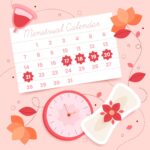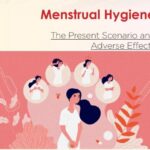Healthy menstruation is the foundation for healthy progeny. Research says that women who menstruate regularly have normal sugar levels.
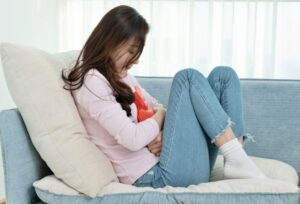

This happened a few years ago. Once a young girl accompanied with her grandmother came in for a consultation. The girl had dysmenorrhoea or painful periods. During the discussion I could sense that the grandmother and her granddaughter seemed to have a conflict with regards to menstruation and practices followed during those 3-5 days. The elder lady said, “Doctor, she tells me I am old fashioned and what I advise her during periods is rubbish”. The girl argued telling that sitting in a place and not moving around was not her idea of menstruation. Her favourite foods were out of reach and dance was forbidden. She felt low and subdued. Then the grandma made a very frank open mark, she said,” I don’t understand why she mocks this honourable feminine energy celebration, why she thinks that menstruation is just another normal day. I think that is the reason her body speaks to her to take rest and she has started to get menstrual cramps”.
A lot of truth in her words, the gynaecological problems we see these days are on the high, right from irregular menstrual cycles to dysfunctional uterine bleeding and unwanted growths in the uterus. What do we blame? Everything from eating habits to sedentary lifestyles and popping of otc products and using toxic consumer products. With all these, we also need to check on our Menstrual practices. Most of them view it as a huge hurdle with nuclear families, fast paced jobs and materialistic commitments. The main reason we demoralize the practices is because we were fed with negative perceptions in the name of modernization. With invasions, we had invasion of our holistic health and wealth science and also social practices which dissolved the sanctity of our reproductive health. To prove the efficacy of menstrual norms a study has been done and published which reveals that there was not only a drastic reduction in the number of menstrual symptoms experienced by each woman, but there was also a drastic reduction in the number of women who experienced any given pain associated menstrual symptom. With healthy menstrual practices come the benefits of higher chances of healthy progeny.
What is to be followed during menstrual phase or during menses?
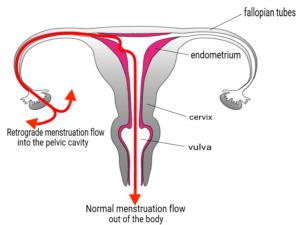

1. Evacuating the menstrual flow (Menstruation is the first and foremost purification process of the body, more like a detoxification).
2. Healing just not the uterus but also regulating metabolism
3. Maintaining strength of the body.
4. During menstruation (from the day of onset of menstrual flow till it stops- roughly the first three days of menstrual flow),
5. One should follow chastity.
6. Should avoid sleeping during the day hours.
7. Overwhelming emotional surging situations like weeping, involving in arguments or laughing is best avoided.
8. Excessive exercises or running are best avoided.
9. Listening to loud, unpleasant or confusing topics which requires concentration is not advised.
10. Sleeping on a mattress made from darbha (Desmostachyabipinnata) leaves is advised. Darbha grass is used as a medicine to treat loose stools and heavy periods, and is used as a diuretic (to promote free flow of urine).
11. A special recipe is advised during these days which is made from rice, ghee and milk. This is served on a banana leaf or earthen clay plate. The quantity to be consumed is said to be the amount that one can hold when the two palms are kept together. One should avoid pungent, hot and salty substances. The less quantity of meals is to keep the digestive system purified and bring in the autophagy situation in the body.
12. Use of Nasya (nasal therapies), Swedana (fomentation therapies) and Vamana (emesis) is contraindicated.
13. On the fourth day of menstruation after use of unguents, a complete head to toe bath, wearing clean new garments, paying obeisance to the environmental energies and god is advised.
These restrictions have said to have an effect on the reproductive attributes. These were based on the time and need of situations where woman’s physical and mental capacities had to be more and restricting activities during these days brought in that needed relief. Therefore, observing all of them today may sound ridiculous but analysing each of the norm gives us the knowledge that it is best suited for a woman in that physiological change.
Role of Rajaswala Paricharya as a whole:
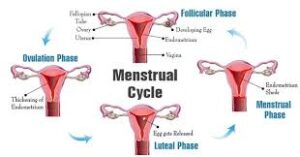

2. Regulating metabolism: We have all heard of how miraculously autophagy helps treating and healing the body. During menstruation we are on a light diet which brings in an orientation of tissue mechanism and balancing fluctuations. Research says that women who menstruate regularly have normal sugar levels. That is women who have irregular cycles are more prone to variable sugar levels and in-turn low metabolism.
3. Maintain the strength of the body : When I asked a group of 10 women to rate the amount of strength loss they faced during a menstruation, 3 of them said negligible or no energy loss while 3 put a score of 5/10 as they face discomfort and fatigue. While 4 put a high score of 7, saying that they would have to be on complete bed rest with the pain and blood loss they faced. About 50 – 80 ml of blood is lost during those 3 days. It obviously takes up some of physical strength of the body. The Rajaswala Paricharya was designed to help the lady regain the lost strength of the body. Just because it’s a monthly phenomenon, women do not bother to take rest during these days. This is more like a miniature post-natal period actually where the body is regaining its capacity to re-furnish the uterus and bring in harmony. Avoiding physical strain and rest encourage healthy recovery of the uterine lining. It’s also to be remembered that day-sleep is forbidden. So if the idea of rest would mean to laze around the couch then it’s wrong. It is not involving in heavy physical activities but just lesser ones.
Understanding Menstrual cycle through Ayurveda :
The menstrual cycle which can vary roughly from 25-35 days can be divided into three phases:
1. The first phase dominated by the Kaphadosha: After menstruation, the endometrium thickens and become glandular, The essence of Kapha sets in- the glow, the sense of peace and being settled within herself. This culminates in ovulation.
2. Ovulation marks the beginning of the next phase, dominated by pitta. The endometrium becomes more engorged with blood vessels, in preparation for the potentially fertilized egg.
3. If the egg is not fertilized, the last phase arrives. It is a sudden rise in vata bioenergy that begins the menstrual period, and it acts as a moving force, enabling the flow of menstruation.
As long as the doshasfunction optimally and aren’t depleted or overshadowed by another dosha, the menstrual cycle functions optimally. Healthy menstrual practices help to bring in harmony of the bio-energies.
Zoom in on menstruation:
A closer look at rajahkāla(menstruation), we will see many things at play. Even the age at which one begins menstruation is telling of dominant dosha in the being. For instance, normally menarche occurs on average around the age of fourteen, those with strong pitta in their constitution can begin menstruating as early as nine years old and those with high kapha and vata constitution can have menstruation at a later age too. The flow of menstruation also becomes an important criterion in deciding the physiological and pathological conditions. A healthy menstrual flow has the following characteristics:
1. Bright red in colour.
2. Does not stain clothing (a common characteristic of ama, or toxic, unprocessed substance in our body that clogs channels and creates dysfunction can bring in stains).
3. Has an odour that is not foul.
4. Has an average amount, but it depends on the person, their constitution, and their size.
Special Ayurveda recipes during menstruation:
1. Havishya anna – Meal made from ghee, rice and milk. Rice cleaned from physical impurities, is washed well and boiled with milk. Once cooked ghee is added and consumed. Cardamom and sugar candy add in that refreshing taste.
2. Yawaka – Meal made from barley and milk. Barley is a diuretic. A kanji prepared from barley is easy to consume and aids digestion.
Healthy menstrual practices are the foundation for healthy progeny as the woman in comparison to male, plays 2 roles in reproduction: 1. Her egg and 2.Her womb. The norms and regulations meant during menstruation or any other ritual has values. Sometimes we hype the scenario giving importance to the extras than understanding as to why we practice it. We are in an era where the world has started to research our ancient wisdom and launch its values where as we are struggling to proudly stand on our ground values. So, next time before mocking our values lets marvel the brains behind this wonderful health culture.


Dr. Sanmathi Puneeth
Shubha Ayurvedic Centre & Sriranga Ayurveda
Basavanagudi, Bangalore-560004.
Ph:. 7829488352, 080-26627717



